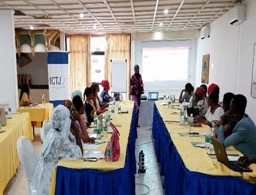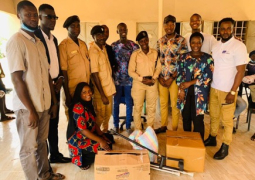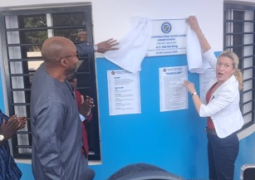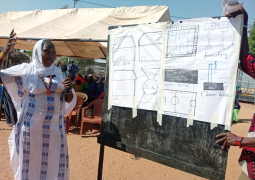
The training seminar, held at the Senegambia Beach Hotel on the theme: "Building a Common Understanding and Alliance for Implementation” attracted over 20 stakeholders from Fantanka, Women’s Alliance for Victims’ Empowerment (WAVE), Female Lawyers Association of The Gambia, ANEKED and Justice and Finance Ministries.
The daylong roundtable seminar was geared towards building the capacity of members of civil society, advocates, stakeholders and partners from the Government departments who have critical roles to play in the implementation process as actors, facilitators and monitors.
Priscilla Yagu Ciesay, ICTJ’s Gender Consultant said participants were taken through different forms of reparations, the designation of the reparations, sexual and gender-based violence in the reparations process and a comprehensive comparative analysis of reparations from other countries that underwent transitional justice processes, amongst other topics.
Ciesay noted that reparations, as part of the transitional justice process, is an important element in addressing the plights of victims who suffered violations.
Tijian Jow, ICTJ Media Consultant exposed attendees to communication approaches to reparations as well as victim expectation management in a detailed and interactive discussion.
The right to reparations for victims of gross violations of human rights is well founded in the 2017 TRRC Act, which takes cue from the AU Transitional Justice Policy and from international laws.
“Those who have suffered human rights violations deserve acknowledgement of these violations and appropriate action taken to provide redress,” TRRC stated in its final report.
Thus, the training is expected to rejuvenate and rekindle the dormant government process of implementation of the TRRC recommendations implementation, especially in the area of reparations.





